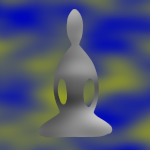Dear Friends,
The fifth kind of wisdom Gil discusses is what he calls liberative wisdom.
https://www.audiodharma.org/talks/11207
We start practice often from a place of suffering – we initiate practice from this motivation to find freedom from suffering. As we practice, there is more clarity and we can start to distinguish what is happening. That gives us more capabilities to see where there is choice – what is beneficial to do or not. Then we can be more decisive – saying yes to do what is helpful in this aim to find freedom from suffering; and saying no when it’s not helpful. Seeing what is happening, what is helpful or not, there is more insight into the flow of experience, the characteristics of inconstancy of phenomena, the unsatisfactoriness that comes from clinging or resisting, the flow of nature of which we are a part.
That trajectory of wisdom creates the conditions for liberative wisdom.
Liberating wisdom is what allows that deep letting go to happen. Sometimes it is seeing in a radical way the impermanent, inconstant nature of this world we live in. Sometimes it’s seeing in a deep way that all the ideas and concepts we live by are just that, and we somehow no longer chase after the concepts. It’s to deeply see unsatisfactoriness, stressfulness. dukkha, suffering in a way that somehow becomes integrated or enmeshed in the very way in which we see, hear, and think. It is to get a sense of release, of letting go of that which is letting go of the wanting – a radical full experience of the absence of wanting. That catalyst of feeling and settling back into a place of no wanting is dramatic.
The third catalyst is the deep experience of having real, clear insight – seeing that there is nothing here that I can experience that really works, really is satisfactory, and really can represent the self – all the details. Everything I could touch, smell, taste, see, and think about. It is a radical experience of emptiness. It’s not the emptiness of lacking, but rather a letting go, a deep, deep softening into an open, empty space.
To whatever degree we can touch into this liberative wisdom, even if only temporarily, that gives us a felt sense of what’s true. “The attachments might come back, but that space is still there. That sense, feeling, or experience of freedom, non-wanting, and non-clinging is there as a reference point.”
So even if this wisdom isn’t something we touch all the time, it’s accessible. We can see how we’re caught and still know in a deep way the freedom and peace that is possible. And we can hold this all with compassion and care and maybe a sense of humor. “Look at that! Look at what this mind is doing.”
And with this kind, caring, patient practice, the body-heart-mind begins to learn to live in ways that support more peace and ease.
Meditation:
Feel free to do a practice of your choice today.
With good wishes,
Andrea
